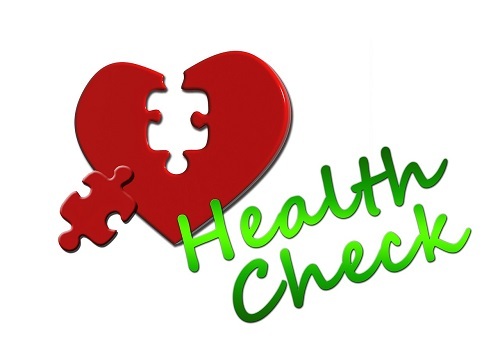
Managing your loved one’s health or even maintaining your own health can be emotionally and physically challenging. Paying for medical expenses associated with healthcare can be equally as difficult. As we age, there are numerous different paths to choose from to maintain our health, from relocating to a senior housing community to staying at home and hiring assistance. Most people would prefer to remain in the comfort of their own home, but how do we pay for home care when we are no longer working and making a steady income? At Senior Directory, we are proud to provide you with a short and easy guide to paying for Home Health Care.
What is Home Health Care?
Home Health Care is any medical or non-medical services that occur in a seniors’ residence. Home health offers a less expensive, more convenient, and just as effective alternative to assisted living, skilled nursing or a hospital stay. The market for home health care is expanding due to the fact that many of the baby boomer generation are nearing retirement. Institutional care has been waning in popularity recently, which is generating an increase in the demand for lower-priced alternatives. Research from the Bureau of Labor Statistics suggest that the number of home health aides will increase by 70% from 2010-2020, encompassing roughly 1.3 million workers in the U.S. alone.
Insurance versus Private Pay
Insurance will not pay for daily living tasks such as the following:
- CNA (Certified Nurse Assistant)
- Companionship Givers
- Bathing
- Dressing
- Housekeeping
- Meals
- Grooming
- Toileting
- Laundry
- Transportation
- Errands
Medicare, Medicaid, and some Private Insurance will cover the following forms of Home Health Care
- Physical Therapy (PT)- balance and gait training, muscle strengthening, reducing pain from arthritis and injuries, learning to use assistive walking devices and wheelchairs, massages
- Occupational Therapy (OT)- therapy to maximize functional capability, safety evaluations in the home, help obtain assistive home health safety features such as guardrails for stairs or handles in the bathroom
- Speech Therapy (ST)- swallowing, speech after stroke, vocal cord stimulation
- Behavioral Health Nurse (BH)- counseling, psychiatric evaluations
- Skilled Nursing (SN) – wound care, medication setup, medication administration, blood pressure, etc.
- Social worker- getting started and acquainted with Medicaid/Medicare, insurance, Meals on Wheels, navigating the health system, counseling
* Not every home health agency has everything listed above
Ways to Pay for Home Health Care
- Medicare/Medicaid
- VA Benefits
- Reverse Mortgage
- Private Pay
- Downsizing House
- Social Security
- Program of All-inclusive Care for the Elderly (PACE)
Financial Benefits to Home Health Care
Home Health Care is significantly cheaper than the alternatives and this is likely correlated with the increased demand in the service. Here are some prices for alternative options that further solidify why more and more seniors are turning to Home Health Care instead of other options like the hospital, assisted living facilities, and nursing homes.
- Average daily cost of a hospital stay -$6,200
- Average cost for an one-bedroom in an assisted living facility- $3,450 per month
- Average price of a semi-private room in a nursing home- $207 per day
- Average cost of Home Health Care- $135 per visit
- Average amount for a home health aide- $19 per hour
- https://www.seniorliving.org/healthcare/help-paying-home-care/
Statistics on How the Average American Affords Home Health Care
- Medicare-41%
- Medicaid- 24%
- State/local government- 15%
- Out-of-pocket- 10%
- Private Insurance- 8%
- Other- 2%
- https://www.seniorliving.org/healthcare/help-paying-home-care/
Conditions to Comply for Medicare
- You must be under the care and supervision of a doctor and be obtaining services under a plan of care established and reviewed by your doctor.
- Your doctor must certify one of the following treatments: skilled nursing care, physical or occupational therapy, and/or speech-language pathology.
- The home health service must be certified by Medicare.
- A doctor must establish that you are homebound. This includes conditions such as the inability to leave the house without help such as a wheelchair or walker.
- Care cannot exceed 7 days per week or 8 hours per day for three weeks.
Medicare Coverage
- Skilled Nursing Care provided by a registered nurse (RN) or licensed practical nurse (LPN). Services include shots, tube feeding, administering IV drugs, changing dressings, prescription drug and diabetes care.
- Physical therapy, occupational therapy and speech-language services.
- Medical social services that includes counseling and help finding community services.
- Medical supplies and suppliers for your specific needs.
Exclusions from Medicare
- Personal care like grooming, dressing, bathing and other activities of daily life.
- Homemaker services that include household cleaning, shopping, cooking and laundry.
- Around the clock care; aka 24-hour-a-day care.
- Meals delivered to the house.
Medicaid Services
State governments and therefore each individual state conduct Medicaid administration and each service is different depending where you are located.
Home Health Coverage “Must Include”!
- Part-time nursing
- Medical supplies
*May Include
- Physical Therapy
- Occupational Therapy
- Speech Therapy
Home Health Care for Veterans
If you are a Veteran, you are most likely eligible to receive what is known as Housebound benefits. This is a payment to seniors receiving care in-home or in the home of a family member.
Veterans could be eligible for this benefit if:
- The veteran has sustained a “single permanent disability evaluated as 100-percent disabling AND due to such disability, he/she is permanently and substantially confined to his/her immediate premises.”
- “The Veteran has a single permanent disability evaluated as 100-percent disabling AND, another disability, or disabilities evaluated as 60 percent or more disabling.”
- Income less than $14,978 without dependents and $18,773 with dependents annually.
Other Benefits for Veterans
- Homemaker and Home Health Aide Care
- Case management
- Assistance with activities of daily living
- Home-related care services
- Skilled Home Health Care
- Telehealth Care
- Home Based Primary Care
Program of All-inclusive Care for the Elderly (PACE)
PACE is a Medicaid/Medicare service that provides seniors care in their own home. This program provides help with procedures such as home care, counseling, meals, transportation, and other Home Health Care services. Here are the basic requirements to qualify for this program under the condition you have Medicaid or Medicare.
- Older than 55 years of age
- Reside in an area serviced by PACE
- Have the necessary medical conditions to require nursing home care
- Safely live in the community provided by PACE
Article written by Nick Schaller with Senior Directory, LLC


Comments